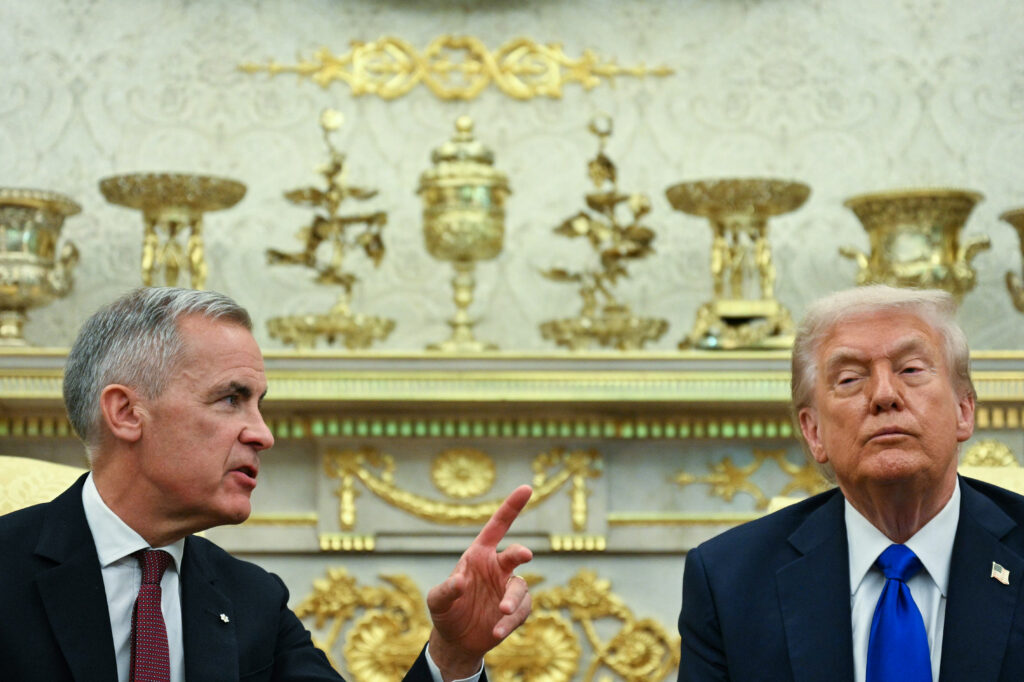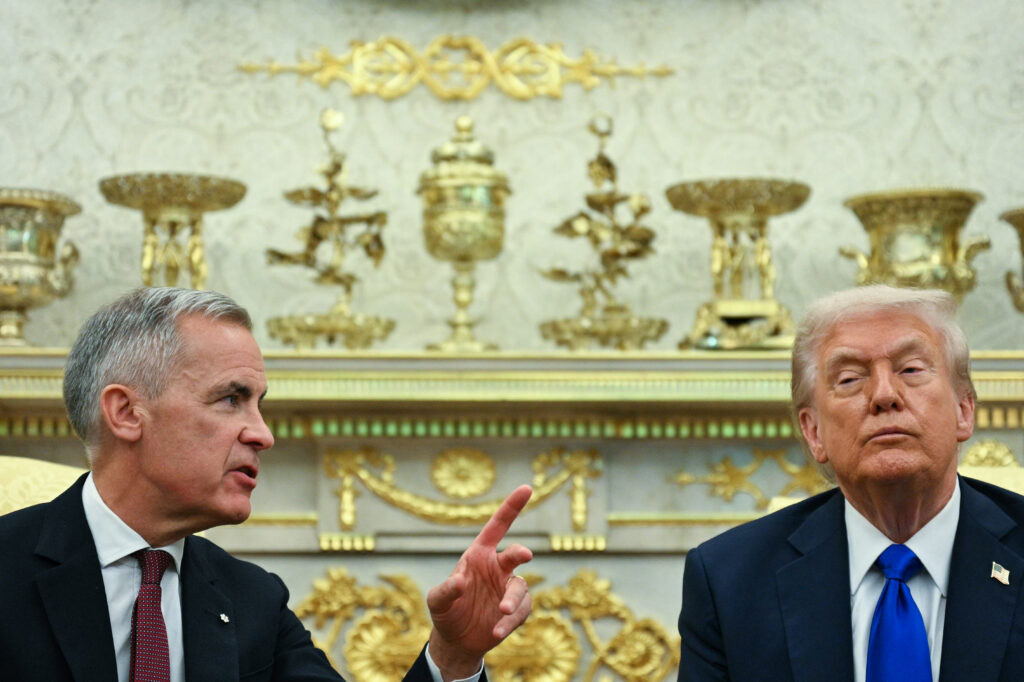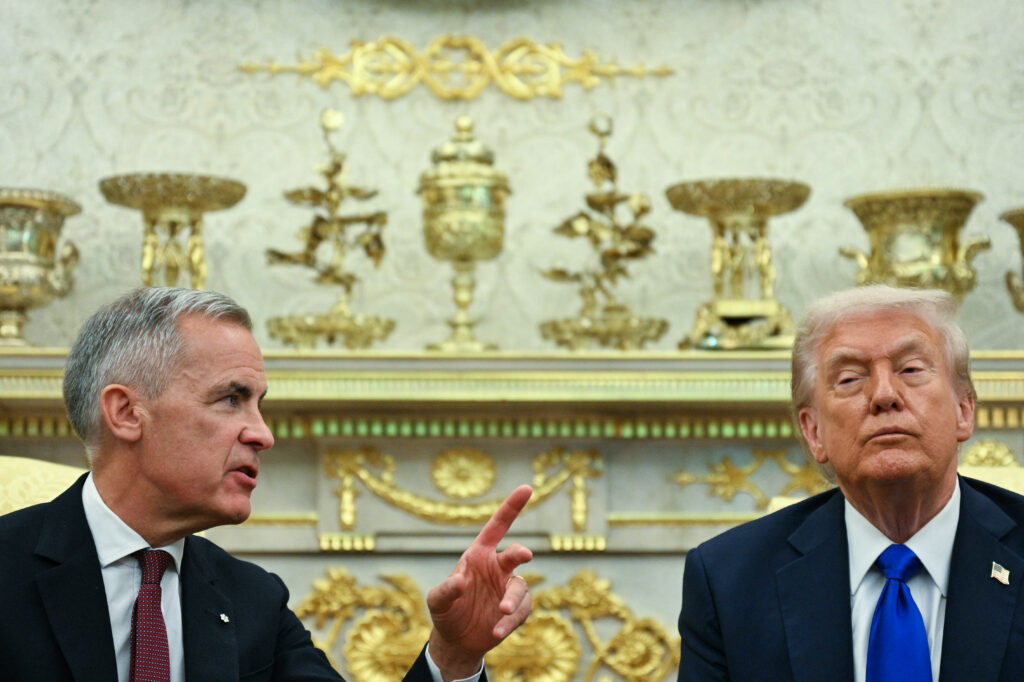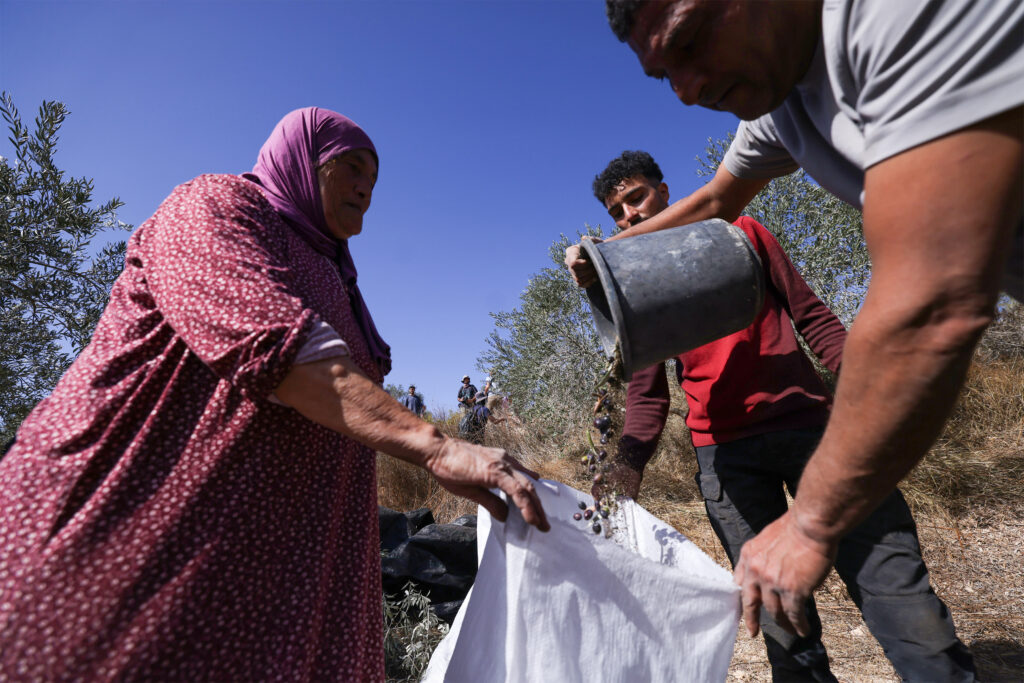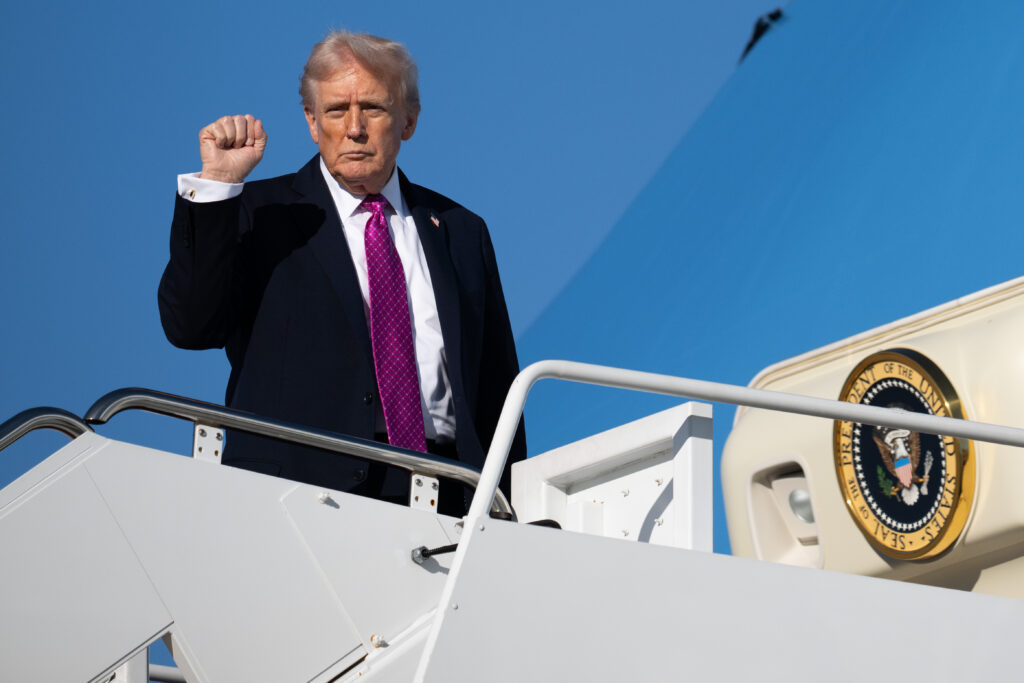Trump fustige le “coup tordu” du Canada malgré le retrait de la campagne publicitaire
Donald Trump a continué de fustiger le Canada pour son “coup tordu”, malgré le retrait dans une province du pays d’une campagne publicitaire télévisée contre la hausse des droits de douane qui avait conduit le président des Etats-Unis à rompre leurs négociations commerciales.La province de l’Ontorio a annoncé vendredi la suspension de cette campagne mettant en scène l’ex-président Ronald Reagan en train de critiquer les droits de douane, tout en précisant que la publicité serait diffusée aux Etats-Unis ce week-end, à l’occasion notamment des deux premiers matches des finales du championnat nord-américain de base-ball, qui engendrent traditionnellement une forte audience.”Le Canada s’est fait prendre en train de tricher dans une publicité, pouvez-vous le croire ? » a réagi vendredi M. Trump aux journalistes avant de s’envoler pour une tournée en Asie. “J’ai entendu dire qu’ils allaient retirer la publicité. Je ne savais pas qu’ils allaient la diffuser un peu plus. Ils auraient pu la retirer ce soir”, a-t-il ajouté à propos de cette campagne qui avait suscité sa colère et l’avait conduit la veille à rompre les négociations commerciales avec le Canada.Apprenant que le spot allait être déprogrammé dans l’Ontario, il a dénoncé un “coup tordu”. “Je peux la jouer plus tordue qu’eux”, a-t-il menacé, disant n’avoir aucune intention de discuter avec le Premier ministre Mark Carney ou de le rencontrer après cette séquence.Un haut responsable américain avait auparavant indiqué à l’AFP qu’une telle entrevue était possible mercredi en Corée du Sud, en marge du sommet de la Coopération économique Asie-Pacifique (Apec).La rupture des négociations commerciales constitue un revirement soudain du président américain au moment où un accord commercial entre Ottawa et Washington portant sur l’acier, l’aluminium et l’énergie, semblait pouvoir être conclu, selon le quotidien canadien Globe and Mail.- Relation bousculée -Le Canada est le deuxième partenaire commercial des Etats-Unis et un fournisseur majeur d’acier et d’aluminium pour les entreprises américaines.Mais leur relation a été bousculée par le retour au pouvoir de Donald Trump en janvier.La grande majorité des échanges transfrontaliers restent exemptés de droits de douane, les Etats-Unis et le Canada continuant d’adhérer au traité de libre-échange nord-américain (Aceum). Mais les surtaxes sectorielles mondiales imposées par le républicain, en particulier sur l’acier, l’aluminium et les automobiles, ont durement touché Ottawa, entraînant des pertes d’emploi et mettant les entreprises sous pression.S’exprimant avant de s’envoler pour l’Asie, M. Carney n’a, de son côté, pas directement mentionné le revirement de M. Trump, mais a déclaré que les discussions bilatérales avaient montré des “progrès (…) et nous sommes prêts à poursuivre sur cette lancée et à tirer parti de ces progrès lorsque les Américains seront prêts”.”Nous ne pouvons pas contrôler la politique commerciale des Etats-Unis”, a-t-il également déclaré, soulignant son désir d’approfondir les relations commerciales avec d’autres pays.- 75 millions -Selon Donald Trump, les autorités canadiennes cherchent à “influencer la décision de la Cour suprême des Etats-Unis et d’autres tribunaux”, devant lesquels est contestée la légalité des décrets du président américain ayant déclenché les hausses douanières.Produite par la province de l’Ontario, la campagne publicitaire a été diffusée sur plusieurs chaînes de télévision américaine pour un montant d’environ 75 millions de dollars.Elle utilise des citations d’un discours prononcé en 1987 par l’ancien président républicain Ronald Reagan (1981-1989), dans lequel il mettait en garde contre les conséquences de droits de douane élevés sur l’économie américaine.La Fondation Ronald Reagan a accusé sur X la campagne de “déformer” les propos de l’ex-président, utilisés “de manière sélective”. Elle a dit examiner des “options juridiques dans cette affaire”.Dans un discours mercredi sur ses priorités budgétaires, Mark Carney a déclaré que la politique commerciale “fondamentalement modifiée” de Washington nécessitait une refonte de la stratégie économique du Canada.M. Carney avait rencontré début octobre le président Trump à la Maison Blanche pour tenter d’avancer vers une résolution du conflit, mais n’avait obtenu aucune concession publique.
